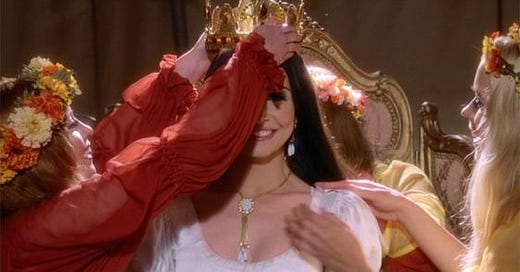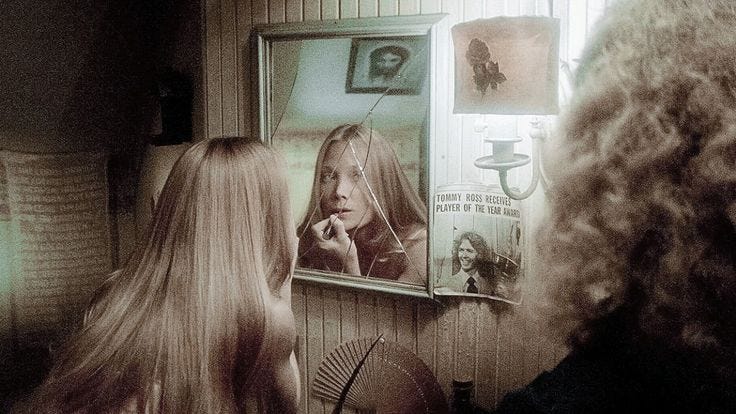Villains get a bad rep. People who aren’t oriented to this archetype feel that embracing the label is not in spiritual alignment with your purpose: to care, to love, and to feel.
Well, I disagree.
I understand the intention of this perspective, but I also understand the one that has yet to be considered.
The initial perspective is to get you to stop positioning yourself as a “bad” person because you state a boundary or discover how to be unapologetically yourself. It’s also trying to get you to evolve from a place of healing and love without considering you can also transmute hate, anger, and heartbreak into radical, erotic self-devotion.
Your villain era will never be completely foolproof.
To be an intentional, evolved villain, you have to understand how you got here in the first place. You aren’t a bad person because you learned how to survive the shitty end of the stick you were handed, BUT your behavior can be bad if you haven’t dealt with the muck you’re trying to escape from. Every light has a shadow and if you dance too close to either side of the extreme, it can cross a multitude of unforgivable, immoral lines. The villain can have an immense shadow, and you can get stuck there, causing intentional or unintentional harm in the midst of being unapologetically yourself (let’s put a pin in this 📌 because it deserves its own post).
Here’s another perspective I’d like for you to consider:
You may not want to embrace the title of a “villain” and yet you still become one at many points in your lifetime. Why? because anytime you go against someone else’s opinion, values, perspective, or desires, you become the antithesis of their expectations. It doesn’t mean everyone will villainize you, but let’s be real, some people will.
what is the villain archetype?
at its simplest, a villain is an antagonist who opposes the protagonist’s goals and desires.
a truly great villain is more than just a one-dimensional character who exists solely to thwart the hero. Instead, the best villains are complex, fully realized characters with their own motivations, goals, and desires. (source)
I love this take because we are all indeed characters in this play on earth. In every story there is a main character but every juicy story has an antagonist. In life, you can’t always control the narrative; therefore, you can become the antagonist even when you don’t desire to be.
To villainize someone is to speak about them negatively or portray them in a negative way, especially to influence others to see them as a bad person.
where does villainize come from?
Villainize was first recorded around the 1620s. Villain is much older (first recorded around the early 1300s) and comes from the Late Latin word villānus, meaning “a farm servant.” Originally, villain referred to a man whose social status was well below the nobility (such as farm worker). Eventually, it became associated with “the bad guy”—a scoundrel or a person devoted to evil.
To villainize someone is to make them out to be the bad guy. This implies that they aren’t necessarily as bad as they’re being described. So, when someone says that a certain person is being villainized, they usually mean that that person’s bad qualities have been exaggerated in order to make people dislike them. (source)
Wait...let’s circle back. You mean to tell me that the original meaning of the word “villain” wasn’t some immoral, despicable character it was a person whose social status was lower in class? Yup. Somehow, a farmer was a villain to the king.
Two things can happen here. The farmer can embrace the word because their authentic livelihood is more important than what a privileged person thinks...or flip it and view the king as the true villain. Either way, the villain exists.
We can see today how the original meaning of the word hasn’t changed much. To villainize is to disparage ones character in the context of a social group. So what if you don’t care about the opinions of that social group? Well, you can embrace the title.
#vilified: a mini case study
The villain arc reminds me of one of my favorite horror films, Carrie (1976). The dynamic between Carrie and her mother is familiar to many people who’ve endured shame and abuse from parental figures who haven’t processed their own. Carrie’s mom, Margaret White, is constantly prepping her daughter for the shame and embarrassment she’ll face in the world if she doesn’t follow the path of her expectations. Margaret’s religion, like many, creates the framework for which her identity exists. Her identity includes her daughter because people see their children as reflections of themselves
Margaret White is a villain because she subconsciously uses her own shadows to dominate her daughter Carrie. However, Carrie is also a villain to her mother because her coming-of-age is a direct reflection of what her mother refuses to accept. Carrie’s existence becomes a direct attack on her mother’s reality even though they live in their own respective versions.
authenticity as a weapon
Authenticity is dangerous to people who are afraid of its impact on their well-being. This is why not everyone feels safe to be their authentic selves and why others can be triggered by someone else’s brazenness. People who are unapologetically themselves feel dangerous because they cannot be tamed by means of embarrassment. They aren’t as vulnerable, so their existence becomes armor that you’re afraid to approach...or a weapon if you feel their presence exposes the lies you’ve been told is your reality.
villains have feelings too.
It’s normal to deeply care about how you are perceived in society because it is quite literally a survival mechanism to not stand out in a group for fear of death or isolation. We all conform depending on the safety and freedom of our circumstances. There is no “better” way of being in this context.
You can learn to blend in with the group to avoid the consequences of wanting out. But sooner or later, when no one is watching, you’ll have to confront yourself. You’ll need to check in often, gauging how closely your identity matches with who you feel to be in the darkness (and if it’s emotionally and physically safe to pursue that change). This is where your villain origin story will likely take root.
To wear the crown of a villain 👑 is to be okay with being an antagonist in someone else’s story because you know you have the birthright to write your own.
being a villain in someone else’s story is to be the hero in yours.








I loveddddd this. While reading I chuckled thinking about the many times I have been the villain in someone's story. But this line in particular, "because anytime you go against someone else’s opinion, values, perspective, or desires, you become the antithesis of their expectations," pushed me to be honest about villainizing someone else bc they are indeed the antithesis of my expectations.
Thank you for this, I feel seen🤧